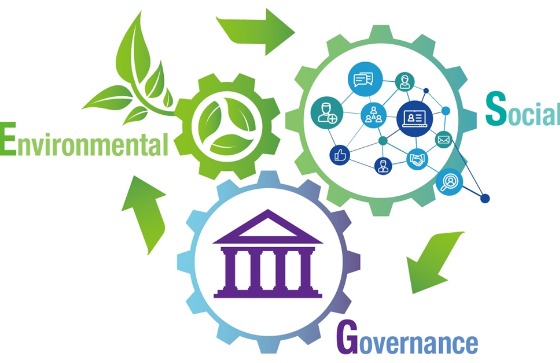By Frank Conway
Investors today want to see their money make a difference. But in addition to growing the value of their money, they are increasingly asking that other factors be considered, including environmental impact and social justice.
This is no fad! And major money managers are paying attention and taking action.
For those that are seeking an investment strategy with a focus on what is generally called responsible investing, they are part of the fastest-growing investment categories on the planet.
There are two primary avenues of this type of investing and in very broad terms, they overlap and share the common goal of directing money towards having a positive impact on society and the environment. But while there are many commonalities, there are also some key differences.
Both Environmental, Social and Governance (ESG) and Socially Responsible Investing (SRI) are gaining significant traction. The growing demand among investors means that not only do they want their investments to work for them personally but they also want their investment choices to work for others too, including employees of the companies they invest in, society-at-large and the environment in general.
Protect and grow the value of your money while pushing for better environmental, social and governance outcomes
ESG investing broadly applies traditional financial analysis when assessing an investment. However, it then layers an additional screen onto it; the consideration of environmental, social and governance risks. In other words, the investment potential is the first test while the ESG factors are the second.
So, the ESG filter looks for the financial outcome to be delivered in the best way that caters for the conditions of workers, the protection of the environment and so forth.
In practical terms, using the example of an energy firm that an investor may be considering as an investment option, their decision to invest may be swayed by a sharp pivot by that firm towards developing greener alternatives. More broadly, investment managers make those types of decisions every day. A mutual fund manager would consider many emerging factors as they seek out the best ESG options available. Again, on practical terms, this would include issues like how a company handles potential toxic waste, how the corporate rules and governance influence its operations and so on.
Make personal, ethical choices with SRI
Many ESG factors are woven into SRI considerations, so on this basis, they are very closely related, but SRI deals more directly with one’s own personal value system.
The key differentiator for SRI is that it’s ethical or values based. An investor will use their own values as the primary lens to evaluate potential investment options.
Here, an investor will apply SRI screens to select potential companies or funds to decide whether they align with their own values excluding those that are not a match. An example would be someone choosing not to invest in a tobacco company even if the firm was pivoting away from cigarettes and even had an excellent record on employee care.
As investors increasingly screen and select their options using both the ESG and SRI filters, the long-term impact can be enormous at an individual level (employees) and across the wider community (environment).
Impact investing
Impact investing is another form of responsible investing which blends various aspects of both ESG and SRI. Here, one may be looking to invest where there is a specific outcome that provides a common good. One example would be delivery of environmentally sustainable food production at a local level where farmers get a greater income potential, or housing designed for those that deliver key services in the community, including nurses, teachers and so on.
There is little doubt that people looking to grow their money through investment options are increasingly doing so with others in mind. As more people learn how investing works, they are taking a more proactive role for the betterment of their communities and society in general. Investment managers are taking note and responding!


Comments are closed.